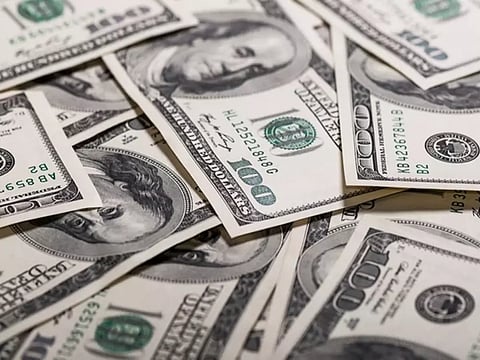

The dollar hovered close to a two-week high versus the euro on Wednesday, while the yen consolidated near the middle of its range this month as traders awaited crucial policy decisions from the respective nations' central banks this week.
The Australian dollar slid after slower-than-expected inflation data suggested the Reserve Bank of Australia would forgo a rate hike next week. The U.S. dollar index - which measures the currency against six major peers, but is heavily weighted toward the euro - was little changed at 101.33 in the Asian afternoon, after pushing as high as 101.65 overnight for the first time since July 11.
The euro slipped 0.08% to $1.10495, bringing it close to the previous session's low of $1.1036, a level last seen on July 12. Continued signs of a resilient U.S. economy in the face of the Federal Open Market Committee's (FOMC) steep series of interest rate increases has helped buoy the dollar index from a 15-month trough of 99.549 reached a week ago.
In the latest data, U.S. consumer confidence rose to a two-year high in July amid a persistently tight labor market and receding inflation. Money market traders see a quarter point hike from the U.S. Federal Reserve later on Wednesday as a near certainty, but are split on the odds of another later in the year, putting it at more or less a coin toss.
Elsewhere, the European Central Bank sets policy on Thursday. Again, a quarter point hike is widely expected, but building evidence of an economic slowdown has called into question the chances of another by year-end. "Given the deceleration in underlying inflation, we think the risk is (Fed Chair Jerome) Powell cools on another hike by describing the FOMC as 'data dependent,'" which would pressure the dollar, said Joseph Capurso, a strategist at Commonwealth Bank of Australia.
"If the ECB retain their hawkish bias, by no means guaranteed but more likely than the FOMC, EUR is likely to track higher this week." The Bank of Japan sets policy on Friday, and speculation for a hawkish tweak to the yield curve control (YCC), which had soared earlier in the month, has steadily receded over recent days.
The dollar edged 0.04% higher to 141.025 yen on Wednesday, following a rebound from a multi-week low of 137.245 mid-month. Sterling eased 0.1% to $1.2888. The Bank of England sets rates on Aug. 3.
The Australian dollar, one of the big movers in the Asian session, slid 0.43% to $0.6763 after inflation slowed more than expected in June, reducing pressure for another hike in rates by the central bank on Aug. 1. That unwound much of the Aussie's 0.79% gain of the previous day, after Beijing announced stimulus, lifting the economic outlook for Australia's key trading partner.
"Just when it looked safe to get back in the water with Aussie longs on the China sentiment rebound, the downside surprise on inflation casts fresh doubt on the extent of further RBA tightening needed," said Sean Callow, a strategist at Westpac, predicting the currency could drop below $0.67 near term. Against the Chinese yuan, the U.S. dollar strengthened 0.29% to 7.1577 yuan in offshore trading retracing part of the previous day's 0.67% decline.